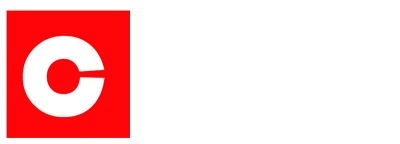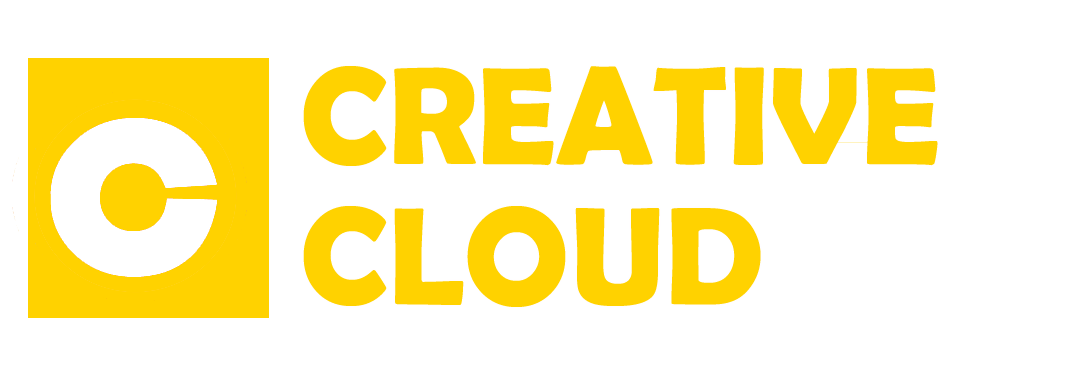
Tribhuvan University introduces an exciting opportunity for aspiring technocrats with its Bachelor of Computer Application (BCA) program, nestled under the Faculty of Humanities and Social Sciences. This forward-thinking initiative was first proposed in the academic year 2071/72 BS, with official launch occurring in 2074/2075. Initially, the program was exclusively offered in six of Tribhuvan University’s constituent campuses.
Unveiling the TU BCA Program:
The TU BCA program spans four years, comprising eight semesters dedicated to crafting proficient software developers armed with a vast array of technical acumen. Through a blend of theoretical insights and practical applications, scholars are empowered to tackle complex challenges prevalent in diverse business and industry landscapes.
Key Objectives of the Program:
- Molding Future Professionals: The program endeavors to cultivate a cadre of adept programmers and software developers equipped with the requisite skills to excel in their domain.
- Exploring Tools and Techniques: Scholars delve into the intricacies of various tools, technologies, and methodologies pivotal in the realm of software development, fostering a comprehensive understanding of the field.
- Integration of Theory and Practice: Emphasizing a holistic approach, the curriculum seamlessly merges theoretical concepts with hands-on practical experiences, ensuring a well-rounded education.
- Fostering Problem-solving Skills: Central to the program’s ethos is the cultivation of robust problem-solving abilities, essential for addressing technical hurdles across industrial, commercial, and governmental sectors.
- Laying the Foundation for Further Studies: Acting as a springboard for academic advancement, the TU BCA course paves the way for pursuing higher education in coveted disciplines such as Master of Information Technology (MIT), Master of Business Administration (MBA), and Master of Computer Applications (MCA), among others.
Eligibility Criteria:
Admission to the TU BCA program is open to students from all faculties. Prospective candidates must hold a minimum of 40% marks or equivalent in PCL, +2, or an equivalent qualification. Understanding of terms like “PCL,” “+2,” and “CGPA” is paramount, given potential variations across educational systems.
Invest in Your Future:
The fee structure for the TU BCA program ranges from Rs. 400,000 to 1,200,000, with scholarship opportunities available based on merit. This ensures that financial constraints do not hinder deserving candidates from pursuing their academic aspirations.
Unlock a World of Opportunities:
With the proliferation of technology in our daily lives, the demand for skilled IT professionals continues to soar. Graduates of the TU BCA program are poised to capitalize on this trend, with lucrative career prospects spanning software development, system analysis, project management, database administration, and more. Moreover, avenues for further academic exploration beckon, with opportunities to specialize in diverse fields through postgraduate studies.
Conclusion:
In essence, the TU BCA program is not merely a degree but a gateway to a world of possibilities. Aspiring technophiles are invited to embark on this transformative journey, where academic excellence meets boundless opportunity. Join us and redefine your future in the dynamic landscape of IT.
Shaheed Smarak College is proud to offer the Bachelor of Computer Application (BCA) program, a cornerstone of excellence in IT education in Chitwan. Our BCA program, affiliated with Tribhuvan University (TU), is meticulously designed to equip students with the knowledge and skills essential for success in the rapidly evolving world of technology.
Why Choose BCA at Shaheed Smarak College?
- Cutting-edge Curriculum: Our BCA program features a comprehensive curriculum curated to meet the demands of the IT industry. From fundamental concepts to advanced topics in software development and programming, students gain a deep understanding of computer applications.
- Experienced Faculty: At Shaheed Smarak College, students learn from a dedicated team of experienced faculty members who are experts in their respective fields. Our faculty not only impart theoretical knowledge but also provide practical insights drawn from their industry experience.
- Practical Learning: We believe in learning by doing. Through hands-on projects, lab sessions, and industry internships, students have the opportunity to apply their theoretical knowledge to real-world scenarios, honing their practical skills and problem-solving abilities.
- Career Opportunities: Graduates of our BCA program are highly sought after by leading IT companies both locally and internationally. With our strong industry connections and career guidance services, students are well-prepared to embark on rewarding careers as software developers, system analysts, project managers, and more.
Bachelor of Computer Application Syllabus
You can check the details of the Bachelor Of Computer Application Syllabus below. We have mentioned the course code, credit hours, and course title for each semester. BCA is a four years degree that consists of 126 credit hours in total. 1 credit hour is equivalent to 16 lecture hours. Hence, the total hours required to finish BCA is 2016 lecture hours. The total 126 credit hours are distributed among various subjects which are listed below. However, students have to study a total of 96 credit hours of computer-related subjects which includes core courses, electives, and internships.
| Courses | Credit Hours |
| Computer Application (Core Courses) | 71 (4*2+3*21) |
| Elective Courses | 12(3+3+3+3) |
| Mathematics and Statistics Courses | 9(3+3+3) |
| Language Courses | 6(3+3) |
| Social Science and Management Courses | 15(3+3+3+3+3) |
| Project and Internships | 13(2+2+6+3) |
| Total Credit Hours | 126 |
| Semester I | ||||||
| SN | Course Code | Course Title | Credit Hrs. | Lecture Hrs. | Tutorial Hrs. | Lab Hrs. |
| 1 | CACS101 | Computer Fundamentals & Applications | 4 | 4 | – | 4 |
| 2 | CACO102 | Society and Technology | 3 | 3 | – | – |
| 3 | CAEN103 | English I | 3 | 3 | 1 | – |
| 4 | CAMT104 | Mathematics I | 3 | 3 | 1 | 1 |
| 5 | CACS105 | Digital Logic | 3 | 3 | – | 2 |
| Total | 16 | 16 | 2 | 7 | ||
| Semester II | ||||||
| SN | Course Code | Course Title | Credit Hrs. | Lecture Hrs. | Tutorial Hrs. | Lab Hrs. |
| 1 | CACS151 | C Programming | 4 | 4 | 1 | 3 |
| 2 | CAAC152 | Financial Accounting | 3 | 3 | 1 | 1 |
| 3 | CAEN153 | English II | 3 | 3 | 1 | – |
| 4 | CAMT154 | Mathematics II | 3 | 3 | 1 | 1 |
| 5 | CACS155 | Microprocessor and Computer Architecture | 3 | 3 | 1 | 2 |
| Total | 16 | 16 | 5 | 7 | ||
| Semester III | ||||||
| SN | Course Code | Course Title | Credit Hrs. | Lecture Hrs. | Tutorial Hrs. | Lab Hrs. |
| 1 | CACS201 | Data Structures and Algorithms | 3 | 3 | – | 3 |
| 2 | CAST202 | Probability and Statistics | 3 | 3 | 1 | 1 |
| 3 | CACS203 | System Analysis and Design | 3 | 3 | 1 | – |
| 4 | CACS204 | OOP in Java | 3 | 3 | 1 | 2 |
| 5 | CACS205 | Web Technology | 3 | 3 | – | 3 |
| Total | 15 | 15 | 3 | 9 | ||
| Semester IV | ||||||
| SN | Course Code | Course Title | Credit Hrs. | Lecture Hrs. | Tutorial Hrs. | Lab Hrs. |
| 1 | CACS251 | Operating System | 3 | 3 | 1 | 2 |
| 2 | CACS252 | Numerical Methods | 3 | 3 | 1 | 2 |
| 3 | CACS253 | Software Engineering | 3 | 3 | 1 | – |
| 4 | CACS254 | Scripting Language | 3 | 3 | – | 3 |
| 5 | CACS255 | Database Management System | 3 | 3 | 1 | 2 |
| 6 | CAPJ256 | Project I | 2 | – | – | 4 |
| Total | 17 | 15 | 4 | 13 | ||
| Semester V | ||||||
| SN | Course Code | Course Title | Credit Hrs. | Lecture Hrs. | Tutorial Hrs. | Lab Hrs. |
| 1 | CACS301 | MIS and E-Business | 3 | 3 | – | 2 |
| 2 | CACS302 | DotNet Technology | 3 | 3 | – | 3 |
| 3 | CACS303 | Computer Networking | 3 | 3 | – | 2 |
| 4 | CAMG304 | Introduction to Management | 3 | 3 | 1 | – |
| 5 | CACS305 | Computer Graphics and Animation | 3 | 3 | 1 | 2 |
| Total | 15 | 15 | 2 | 9 | ||
| Semester VI | ||||||
| SN | Course Code | Course Title | Credit Hrs. | Lecture Hrs. | Tutorial Hrs. | Lab Hrs. |
| 1 | CACS351 | Mobile Programming | 3 | 3 | – | 3 |
| 2 | CACS352 | Distributed System | 3 | 3 | 1 | – |
| 3 | CAEC353 | Applied Economics | 3 | 3 | 1 | – |
| 4 | CACS354 | Advanced Java Programming | 3 | 3 | – | 3 |
| 5 | CACS355 | Network Programming | 3 | 3 | – | 2 |
| 5 | CAPJ356 | Project II | 2 | – | – | 4 |
| Total | 17 | 15 | 2 | 12 | ||
| Semester VII | ||||||
| SN | Course Code | Course Title | Credit Hrs. | Lecture Hrs. | Tutorial Hrs. | Lab Hrs. |
| 1 | CACS401 | Cyber Law and Professional Ethics | 3 | 3 | 1 | – |
| 2 | CACS402 | Cloud Computing | 3 | 3 | – | 3 |
| 3 | CAIN403 | Internship | 3 | – | – | – |
| 4 | Elective I | 3 | 3 | |||
| 5 | Elective II | 3 | 3 | |||
| Total | 15 | 12 | 1 | 3 | ||
| List of Elective Subjects for BCA VII Semester | ||||||
| S.no. | Course Code | Course Title | S.no. | Course Code | Course Title | |
| 1 | CACS404 | Image Processing | 4 | CACS408 | Advanced Dot Net Technology | |
| 2 | CACS405 | Database Administration | 5 | CACS409 | E-Governance | |
| 3 | CACS406 | Network Administration | 6 | CACS410 | Artificial Intelligence | |
| Semester VIII | ||||||
| SN | Course Code | Course Title | Credit Hrs. | Lecture Hrs. | Tutorial Hrs. | Lab Hrs. |
| 1 | CAOR451 | Operations Research | 3 | 3 | 1 | – |
| 2 | CAPJ452 | Project III | 6 | – | – | 12 |
| 3 | Elective III | 3 | 3 | |||
| 4 | Elective IV | 3 | 3 | |||
| Total | 15 | 9 | 1 | 12 | ||
| List of Elective Subjects for BCA VIII Semester | ||||||
| S.no. | Course Code | Course Title | S.no. | Course Code | Course Title | |
| 1 | CACS453 | Database Programming | 5 | CACS457 | Multimedia System | |
| 2 | CACS454 | Geographical Information System | 6 | CACS458 | Knowledge Engineering | |
| 3 | CACS455 | Data Analysis and Visualization | 7 | CACS459 | Information Security | |
| 4 | CACS456 | Machine Learning | 8 | CACS460 | Internet of Things | |


